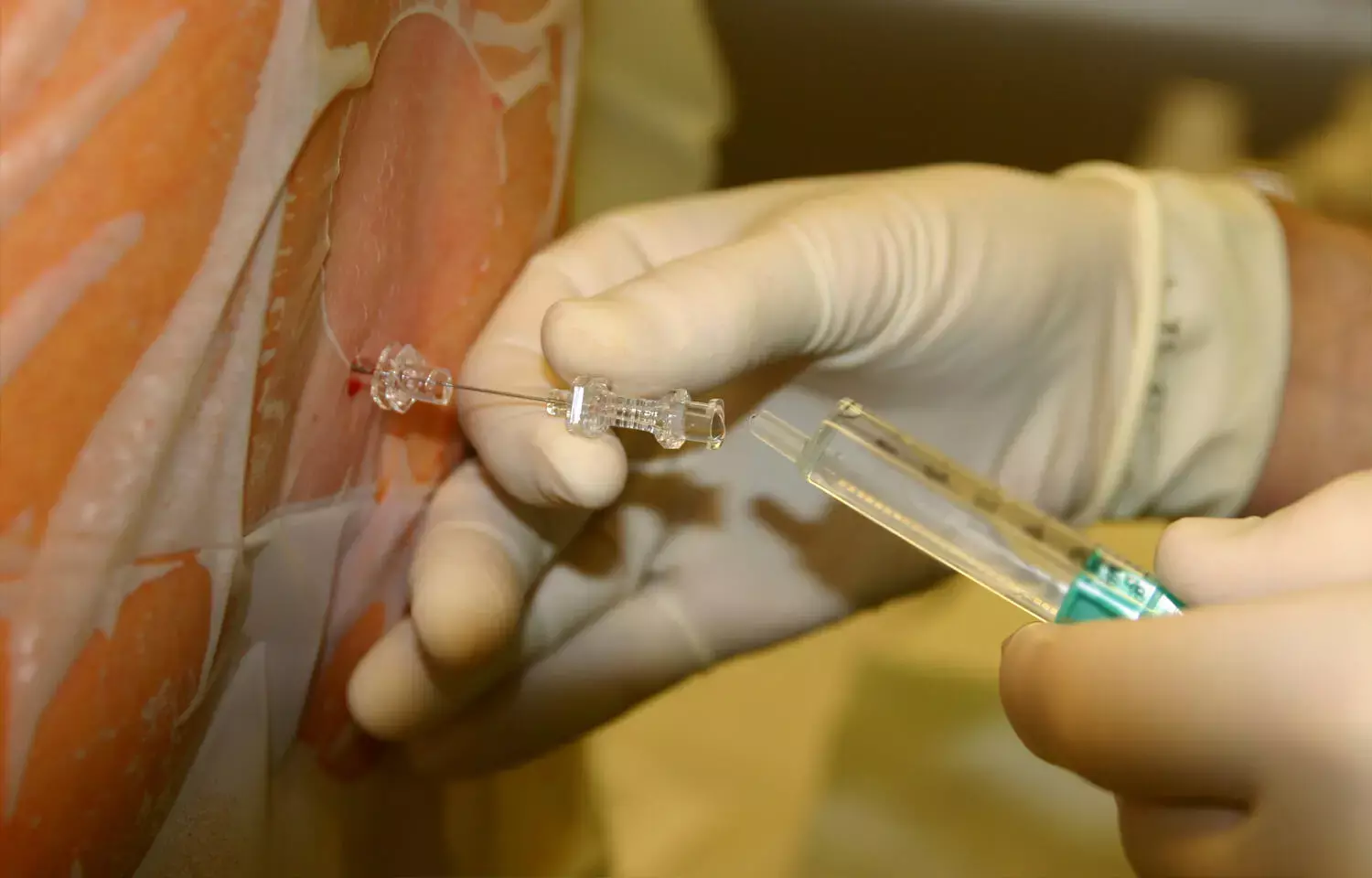- Home
- Medical news & Guidelines
- Anesthesiology
- Cardiology and CTVS
- Critical Care
- Dentistry
- Dermatology
- Diabetes and Endocrinology
- ENT
- Gastroenterology
- Medicine
- Nephrology
- Neurology
- Obstretics-Gynaecology
- Oncology
- Ophthalmology
- Orthopaedics
- Pediatrics-Neonatology
- Psychiatry
- Pulmonology
- Radiology
- Surgery
- Urology
- Laboratory Medicine
- Diet
- Nursing
- Paramedical
- Physiotherapy
- Health news
- Fact Check
- Bone Health Fact Check
- Brain Health Fact Check
- Cancer Related Fact Check
- Child Care Fact Check
- Dental and oral health fact check
- Diabetes and metabolic health fact check
- Diet and Nutrition Fact Check
- Eye and ENT Care Fact Check
- Fitness fact check
- Gut health fact check
- Heart health fact check
- Kidney health fact check
- Medical education fact check
- Men's health fact check
- Respiratory fact check
- Skin and hair care fact check
- Vaccine and Immunization fact check
- Women's health fact check
- AYUSH
- State News
- Andaman and Nicobar Islands
- Andhra Pradesh
- Arunachal Pradesh
- Assam
- Bihar
- Chandigarh
- Chattisgarh
- Dadra and Nagar Haveli
- Daman and Diu
- Delhi
- Goa
- Gujarat
- Haryana
- Himachal Pradesh
- Jammu & Kashmir
- Jharkhand
- Karnataka
- Kerala
- Ladakh
- Lakshadweep
- Madhya Pradesh
- Maharashtra
- Manipur
- Meghalaya
- Mizoram
- Nagaland
- Odisha
- Puducherry
- Punjab
- Rajasthan
- Sikkim
- Tamil Nadu
- Telangana
- Tripura
- Uttar Pradesh
- Uttrakhand
- West Bengal
- Medical Education
- Industry
Regional anesthesia effectively reduces likelihood of postoperative delirium

China: In a new study conducted by Tao Li and colleagues, it was found that regional anesthesia significantly correlated with a reduction in postoperative delirium (POD) occurrence, POD score, and pain score. The findings of this study were published in Frontiers in Surgery.
Up to 5 days following surgery, postoperative delirium might arise in the recovery area. Regional anesthesia's impact on POD, according to the POD recommendations published by the European Society of Anesthesiology (ESA), is debatable. In order to determine if perioperative regional anesthesia decreased the incidence of POD, this meta-analysis was carried out.
To find any evidence that documented regional anesthesia measuring incident delirium following various procedures, standard published randomized controlled trials (RCTs) were searched from bibliographic sources. The occurrence of POD was the main outcome, whereas POD scores, pain scores, and emergence time were the secondary outcomes.
The key highlights of this study:
1. Twenty RCTs were included, with 2110 randomly assigned patients getting various operations.
2. A meta-analysis revealed that as compared to total intravenous anesthesia (TIVA) or inhalation anesthesia, regional anesthesia was linked with a lower incidence of POD.
3. The reduction in POD incidence was linked to a nerve block and regional-combined-general anesthesia, according to subgroup analysis.
4. Following pediatric procedures, regional anesthesia greatly decreased the occurrence of POD in the recovery area.
5. The POD and pain scores were both decreased with regional anesthesia.
6. In terms of emergence time, there was no discernible difference between regional and general anesthesia.
In conclusion, the authors found this study demonstrated a decrease in both the POD incidence and POD score by regional anesthetics. Children in the PACU show this impact of regional anesthesia more so than senior patients do over the first 1 to 5 days after surgery.
"Our results are somewhat complementary to the guidelines as there isn't a lot of solid evidence for regional anesthesia on POD in the guidelines. To validate the current findings, further investigations with sizable sample sizes are still required," they wrote.
Reference:
Li, T., Dong, T., Cui, Y., Meng, X., & Dai, Z. (2022). Effect of regional anesthesia on the postoperative delirium: A systematic review and meta-analysis of randomized controlled trials. In Frontiers in Surgery (Vol. 9). Frontiers Media SA. https://doi.org/10.3389/fsurg.2022.937293
Neuroscience Masters graduate
Jacinthlyn Sylvia, a Neuroscience Master's graduate from Chennai has worked extensively in deciphering the neurobiology of cognition and motor control in aging. She also has spread-out exposure to Neurosurgery from her Bachelor’s. She is currently involved in active Neuro-Oncology research. She is an upcoming neuroscientist with a fiery passion for writing. Her news cover at Medical Dialogues feature recent discoveries and updates from the healthcare and biomedical research fields. She can be reached at editorial@medicaldialogues.in
Dr Kamal Kant Kohli-MBBS, DTCD- a chest specialist with more than 30 years of practice and a flair for writing clinical articles, Dr Kamal Kant Kohli joined Medical Dialogues as a Chief Editor of Medical News. Besides writing articles, as an editor, he proofreads and verifies all the medical content published on Medical Dialogues including those coming from journals, studies,medical conferences,guidelines etc. Email: drkohli@medicaldialogues.in. Contact no. 011-43720751


